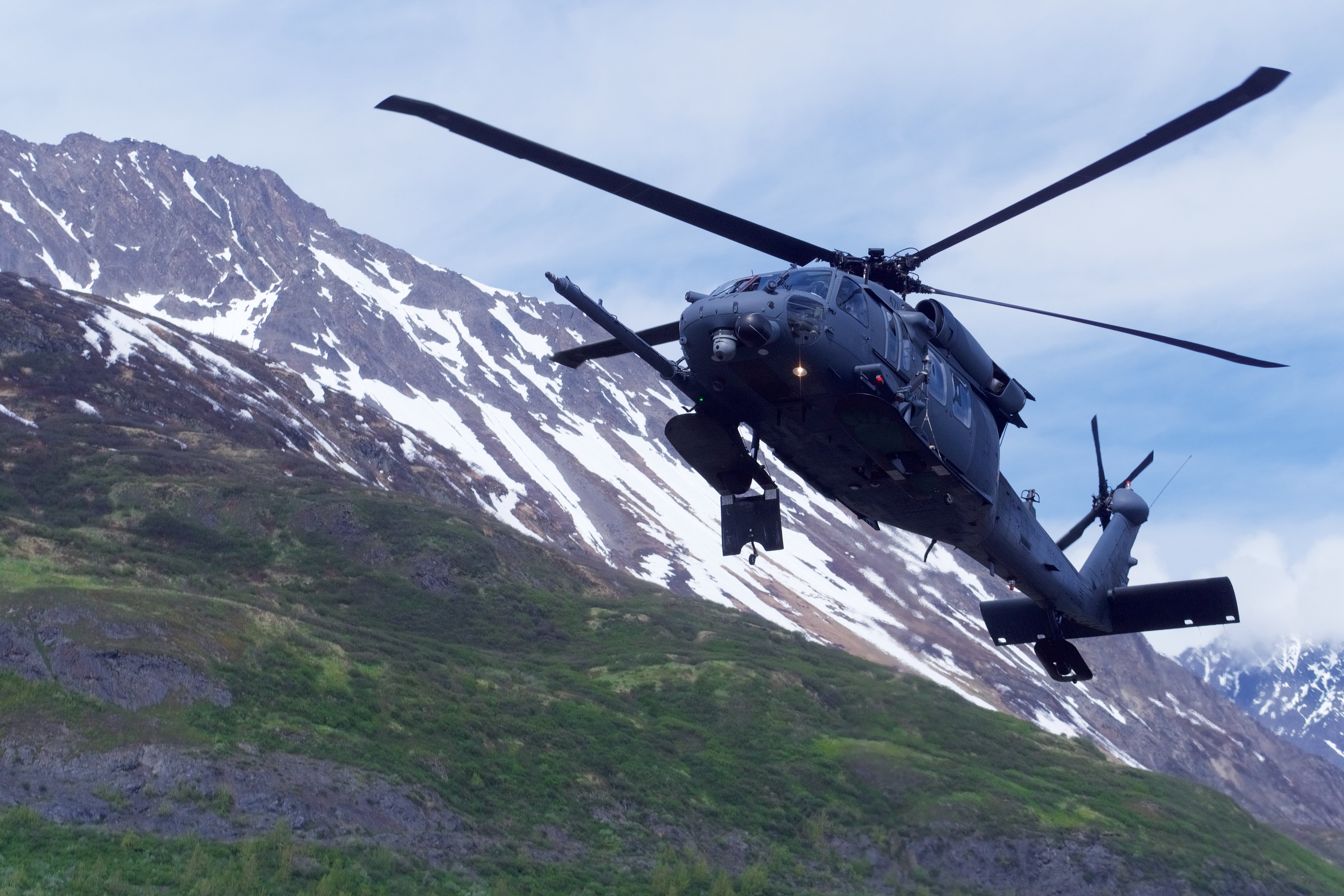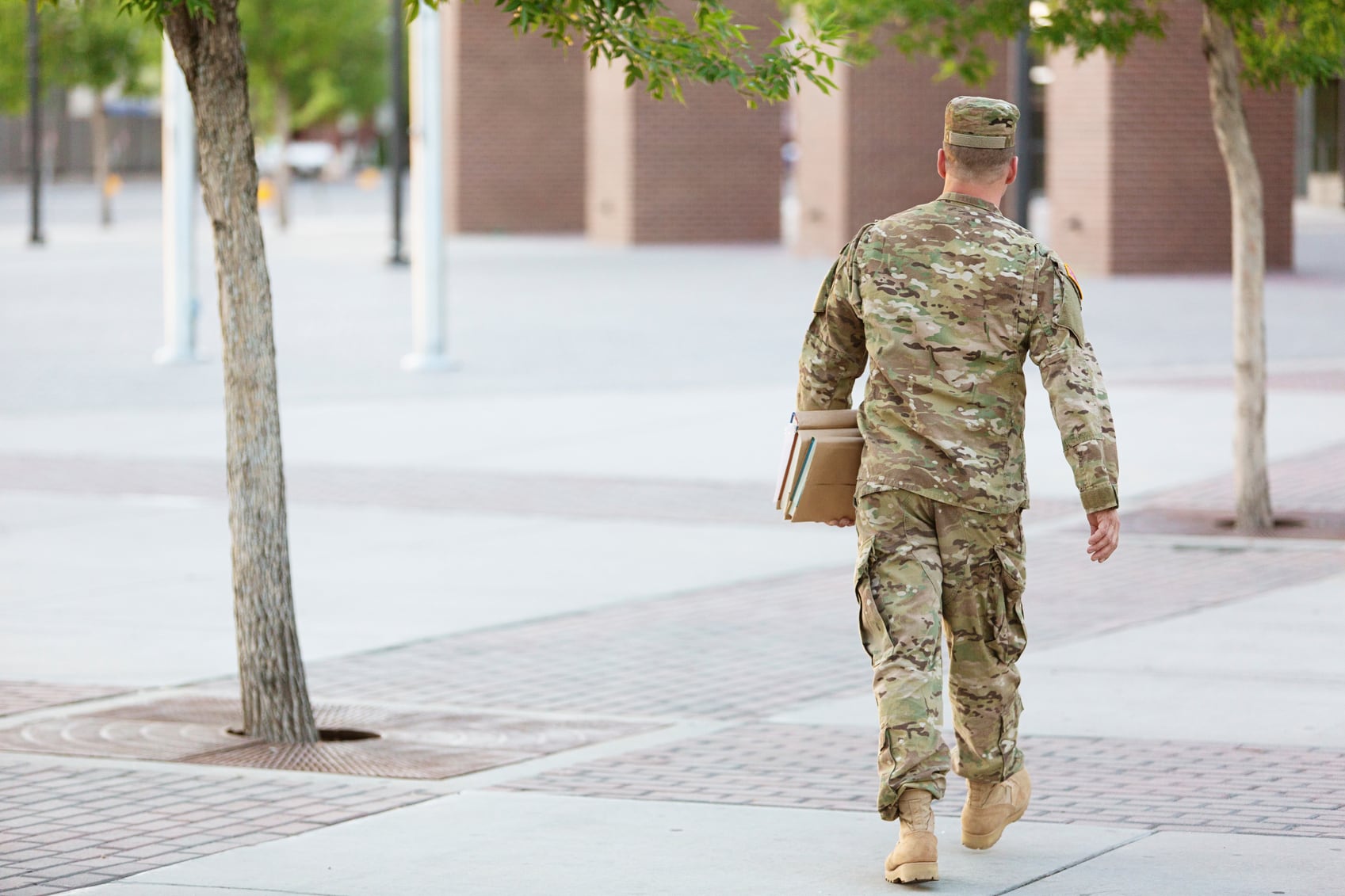ANCHORAGE, Alaska — The Alaska Air National Guard this week traveled nearly 660 miles (1,062 kilometers) to rescue a pregnant woman on a small island 2 miles (3 kilometers) from Russia, reflecting the challenges patients face in the nation’s largest state where the most remote areas have no roads and hospitals can be hundreds of miles away.
There was no air strip for a fixed-wing aircraft, so the crews flew a twin-engine combat search and rescue helicopter from the Anchorage area to the island in the Bering Strait. A long-range search and rescue aircraft guided the helicopter through mountain passes and refueled it in the air several times during the 5-hour flight.
Russian aircraft routinely fly near the Bering Strait, but Alaska Air National Guard Maj. Sara Warren, who was the on-duty rescue officer, said they took every measure to avoid any conflict, including staying on the U.S. side of the international date line.
“There was absolutely no activity from them,” she said of the Russians.
These types of extreme rescues by both the Guard and other agencies are common in a state that is almost 2 1/2 times the size of Texas and has more shoreline than the lower 48 states combined. The Alaska Air National Guard has conducted 14 such rescues already this year, the agency said.
RELATED

“It’s very different here in Alaska because we don’t have the infrastructure that they have down in the lower 48,” said Alaska National Guard spokesperson Alan Brown. “You’re looking at the civilian agencies (that) have a more robust capability; there are more of them.”
Alaska, with a population of only about 730,000 people, is remote, spread out and often has extreme weather, forcing everyone to team up to conduct life-saving missions. A total of 41 people worked on the recent rescue mission on the small island.
“Our guys, fortunately, because of the nature of their federal mission for search and rescue, they have to be capable,” Brown said. “They have to train regularly in extreme weather conditions all across the region and that just makes them prime for this type of rescue.”
The rescue call came Monday morning, said Warren. They were informed of a pregnant woman with severe abdominal pains in Diomede, a village of 80 people on the western side of Little Diomede Island. It’s a traditional Ingalikmiut Eskimo village, whose residents live a subsistence lifestyle, hunting seal, polar bears and blue crab. There are no medical professionals living on the island.
It’s separated from Big Diomede Island, which is owned by Russia, by 2 miles (3 kilometers) of frozen Bering Sea ice this time of the year. The international date line runs between the two islands.
Compounding the rescue was not only lingering fog from sea ice, but also a power outage in Diomede, Warren said. Townspeople would call the nearest hospital in Nome, 130 miles (209 kilometers) away, every hour providing updates on the woman’s condition and then shut the phones off to conserve power. A doctor in Nome would then relay the most current information back to those at Joint Base Elmendorf-Richardson in Anchorage.
A civilian medical crew was on standby in Nome, but they were unable to fly their helicopter because of the poor weather conditions, so the National Guard aircraft launched from Anchorage. The plane would fly ahead after fueling the helicopter to perform weather reconnaissance, leading the helicopter away from storms, through several passes of the Alaska Range and to Diomede. Warren and others at the base monitored all of it in real time.
“They eventually did get her out without causing any kind of incidents,” Warren said.
The woman was then flown to Nome and was doing fine, she said.
Such a complex mission is second hand to the Alaska Air National Guard as compared to other states, where Guard crews might be involved in search and rescue missions. This incident involved the Alaska Air National Guardsmen of 210th, 211th and 212th Rescue Squadrons.
In Alaska, Guardsmen are accustomed to handling complex missions, factoring in bad weather, solving time-distance problems and dealing with harsh terrain, mainly because they train in these conditions as well.
The Guard considers — and even counts on — such missions part of their regular training and thus could not provide a cost estimate for the rescue. The missions provide “exceptional real-world training opportunities not otherwise available,” Brown said.
“Standing up and planning for these types of missions, flying through challenging conditions over varied terrain and saving lives keeps our skills sharp and perfectly translates into mission capability for our national defense,” he added.
The Guard’s 176th Wing conducted 55 missions in 2022 and 57 in 2021.
Of the most recent rescue, Warren said, “That was just another Monday.”





